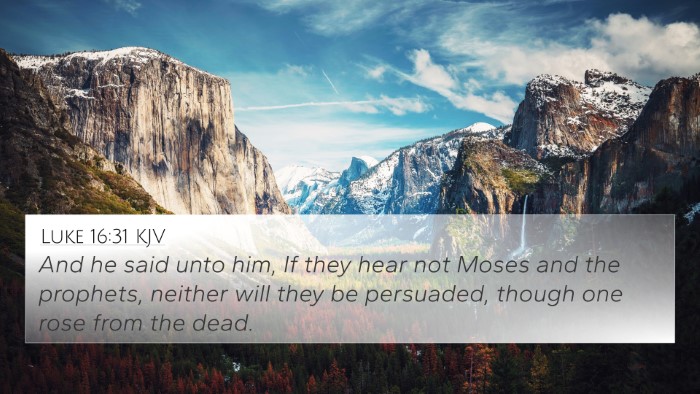Understanding John 9:18
The verse John 9:18 reads, "But the Jews did not believe concerning him, that he had been blind, and received his sight, until they called the parents of him that had received his sight." This passage is pivotal as it highlights the skepticism and disbelief of the religious leaders regarding the miracle performed by Jesus on a man who was born blind.
Summary of the Verse Meaning
This verse illustrates the conflict between the miraculous works of Jesus and the rigid belief systems of the Jewish authorities. Despite the undeniable miracle of healing, the leaders remain obstinate in their disbelief, which is a common theme expressed in the Gospels.
Insights from Commentaries
Matthew Henry's Commentary
Matthew Henry emphasizes the blindness of the religious leaders, suggesting their refusal to accept the miracle stems from pride and a desire to uphold their authority. His analysis points out that spiritual blindness often accompanies physical sight, illustrating a broader spiritual truth where knowledge can lead to pride that clouds true understanding and acceptance of divine works.
Albert Barnes' Commentary
Albert Barnes elaborates on the insistence of the Jews in challenging the legitimacy of the healing. He notes that their willingness to doubt even in the face of clear evidence reflects a deeper issue of faith. Barnes encourages readers to consider the implications of such skepticism and how it can inhibit one’s spiritual journey and acceptance of the truth.
Adam Clarke's Commentary
Adam Clarke highlights the significance of the parents being called as a means to verify the man's condition and the miracle. Clarke draws attention to the societal pressures and fears that may prompt the parents to vacillate in their testimony. He emphasizes the theme of familial pressure in the face of miraculous occurrences, suggesting that the truth can often be met with fear and denial.
Bible Verse Cross-References
- John 9:1-7: The account of Jesus healing the blind man.
- Luke 5:17-26: Jesus healing the paralytic, showcasing disbelief among the Pharisees.
- Mark 2:5-12: Similar theme of healing met with skepticism and questioning.
- John 10:25-30: Jesus' teachings on belief and the nature of His works.
- Isaiah 35:5-6: Prophecy of the Messiah performing miraculous healings.
- Matthew 13:58: Jesus' ministry hampered by unbelief in His hometown.
- John 12:37-40: Disbelief in Jesus’ signs despite overwhelming miracles.
Thematic Connections with Other Bible Verses
This verse connects deeply with several cross-referenced themes found in both the Old and New Testaments:
- Blindness vs. Sight: A recurring theme indicating both physical and spiritual blindness, as well as enlightenment through Christ (e.g., 2 Corinthians 4:4).
- Skepticism of Authority: The struggle between religious authority and genuine faith, illustrated throughout the Gospels (e.g., John 7:48).
- Miraculous Healings: Highlighting how faith plays a critical role in the acknowledgement of miracles (e.g., James 5:15).
Insights into the Disbelief of the Jews
The refusal of the Jews to believe the miracle serves as an example of hardened hearts. It illustrates how preconceived notions and biases can lead to a willful rejection of truth. This theme resonates throughout scripture and serves as a warning for those who are unwilling to see the workings of God in their midst.
Application and Reflection
Readers are encouraged to reflect on their own beliefs. Are we open to recognizing the work of God in unexpected ways, or do we hold on to our doubts stubbornly? The healing of the blind man should inspire vigilance against the spiritual blindness that can come from pride, tradition, and a rigid adherence to dogma.
How to Use Bible Cross-References
Utilizing a Bible concordance or cross-reference guide can significantly enhance one’s study experience. Here are some tools for effective Bible cross-referencing:
- Use a comprehensive Bible concordance to find related scripture.
- Engage in cross-reference Bible study methods that draw thematic connections.
- Explore Bible reference resources that compile related verses.
- Apply concepts of inter-Biblical dialogue to deepen understanding.












